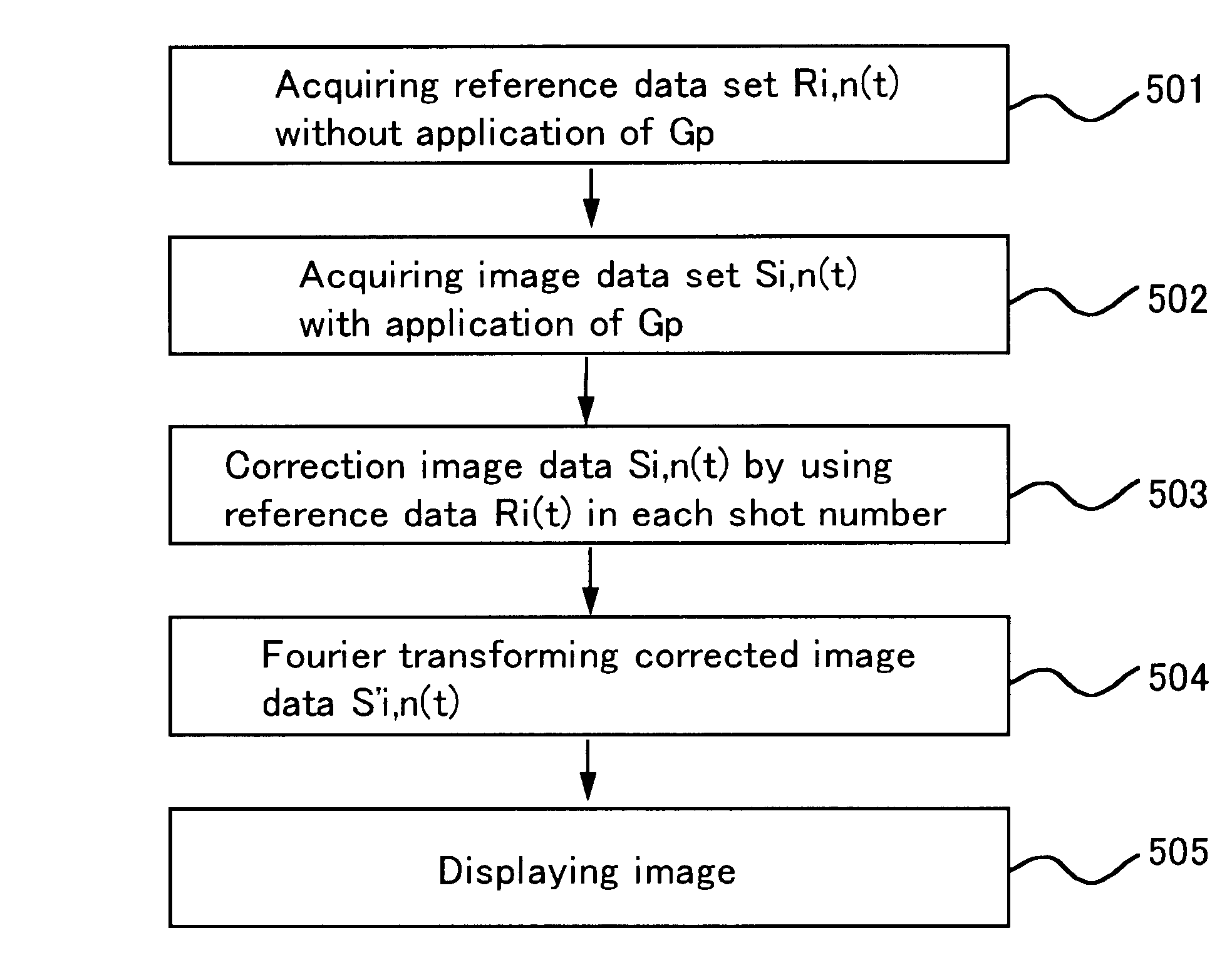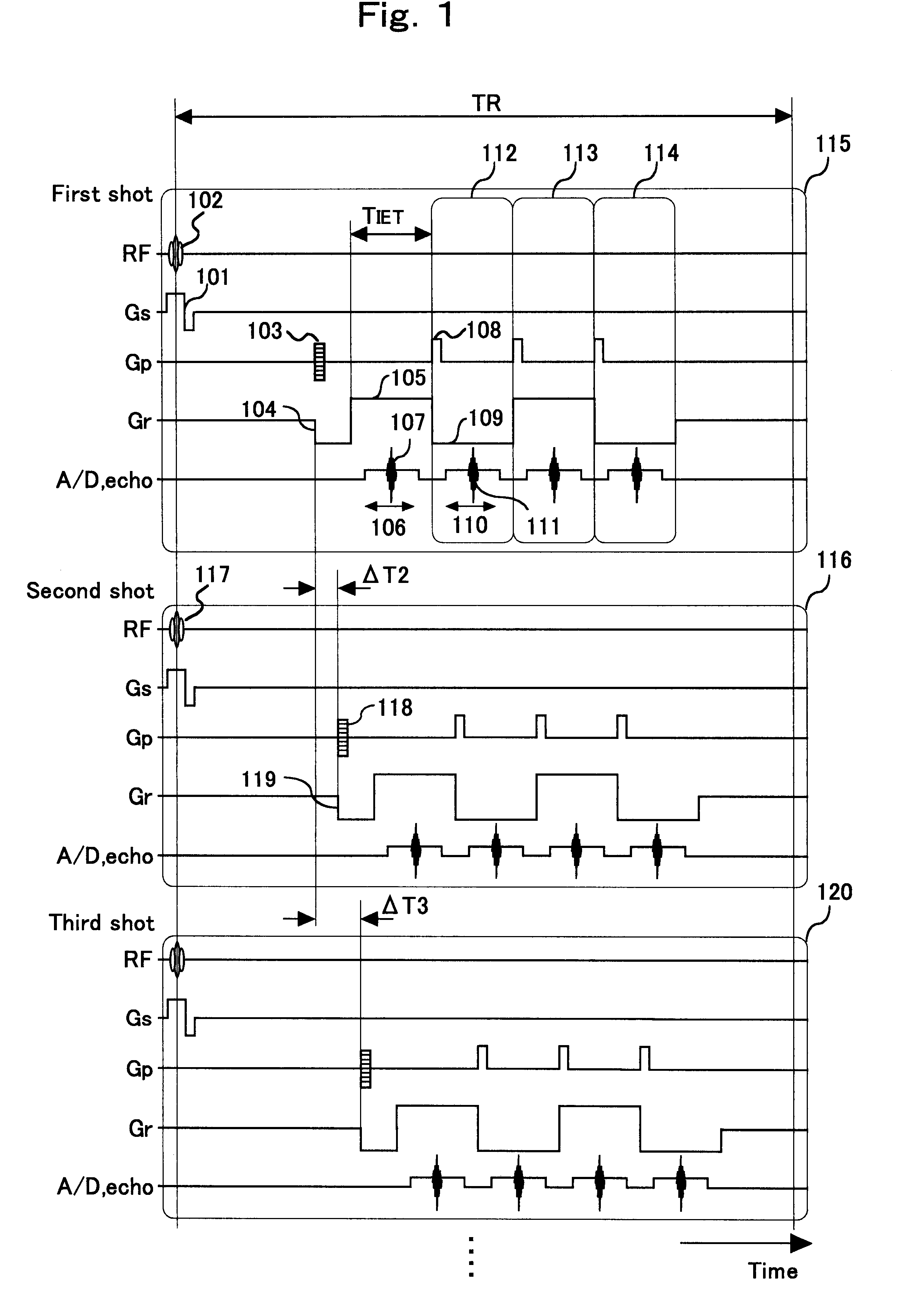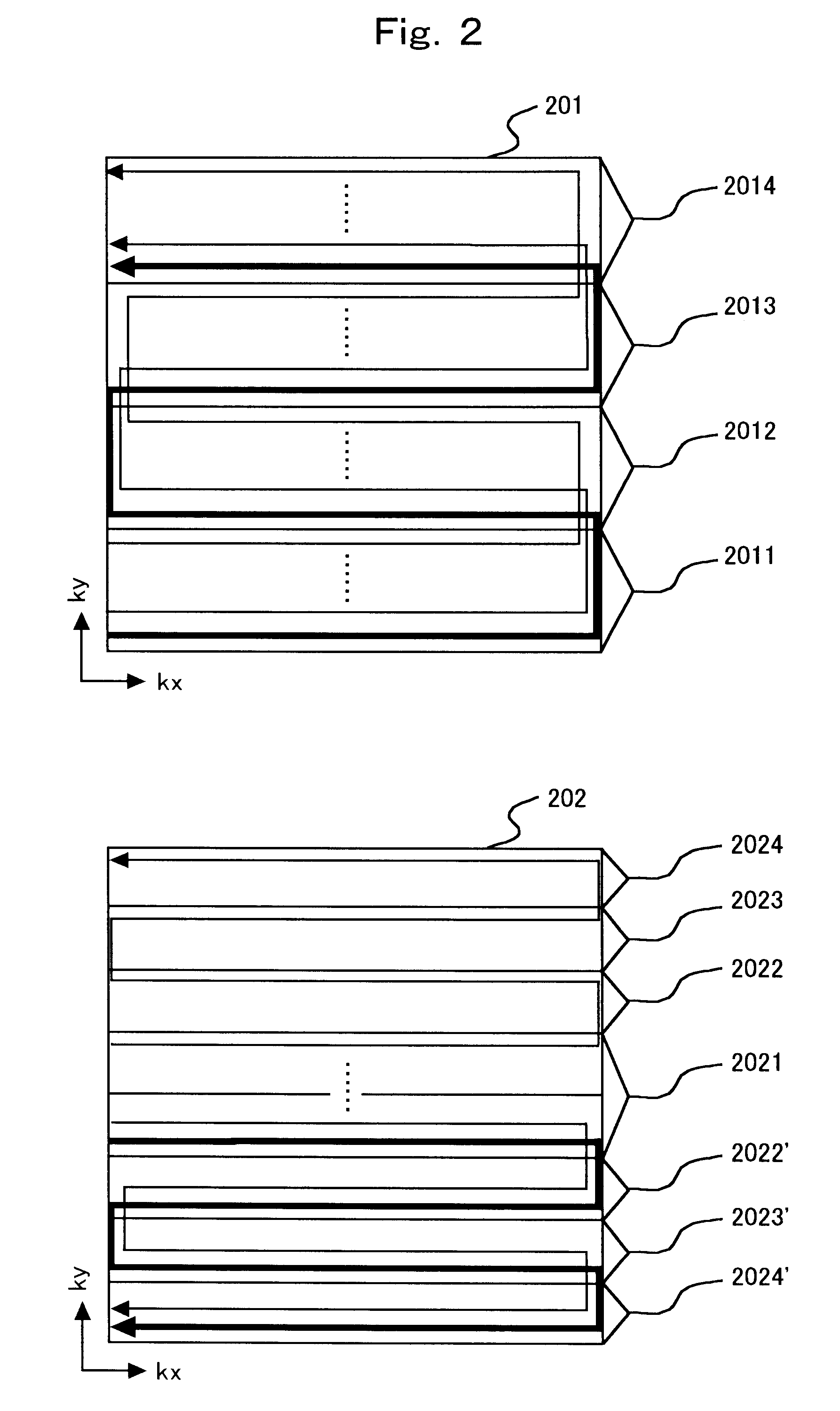Magnetic resonance imaging method and device
a magnetic resonance imaging and magnetic resonance technology, applied in the field of magnetic resonance imaging methods and devices, can solve the problems of actual improvement of image quality, image quality may suffer, improvement can exceed improvement, etc., and achieve the effect of improving the image quality of mr images
- Summary
- Abstract
- Description
- Claims
- Application Information
AI Technical Summary
Benefits of technology
Problems solved by technology
Method used
Image
Examples
Embodiment Construction
FIG. 3 is a diagram that shows one example of an MRI apparatus embodying an example of the present invention. In FIG. 3, 302 is a magnet that generates a static magnetic field within a space for an object 301, e.g., a patient. 303 refers to gradient magnetic field coils that generate gradient magnetic fields in the space for object 301. 304 is an RF coil that irradiates a radio frequency magnetic field in said space. 305 is an RF probe that detects NMR signals generated by said object 301. Gradient magnetic field coils 303 comprise a respective gradient magnetic field coil for each of 3 directions --X, Y, Z. These directions are for a slice selection gradient magnetic field coil, a phase encoding gradient magnetic field coil, and a readout direction gradient magnetic field coil. Each coil generates gradient magnetic fields corresponding to signals supplied to each coil from a gradient magnetic field power source 309 for driving each coil. RF coil 304 generates radio frequency magnet...
PUM
 Login to View More
Login to View More Abstract
Description
Claims
Application Information
 Login to View More
Login to View More - R&D
- Intellectual Property
- Life Sciences
- Materials
- Tech Scout
- Unparalleled Data Quality
- Higher Quality Content
- 60% Fewer Hallucinations
Browse by: Latest US Patents, China's latest patents, Technical Efficacy Thesaurus, Application Domain, Technology Topic, Popular Technical Reports.
© 2025 PatSnap. All rights reserved.Legal|Privacy policy|Modern Slavery Act Transparency Statement|Sitemap|About US| Contact US: help@patsnap.com



